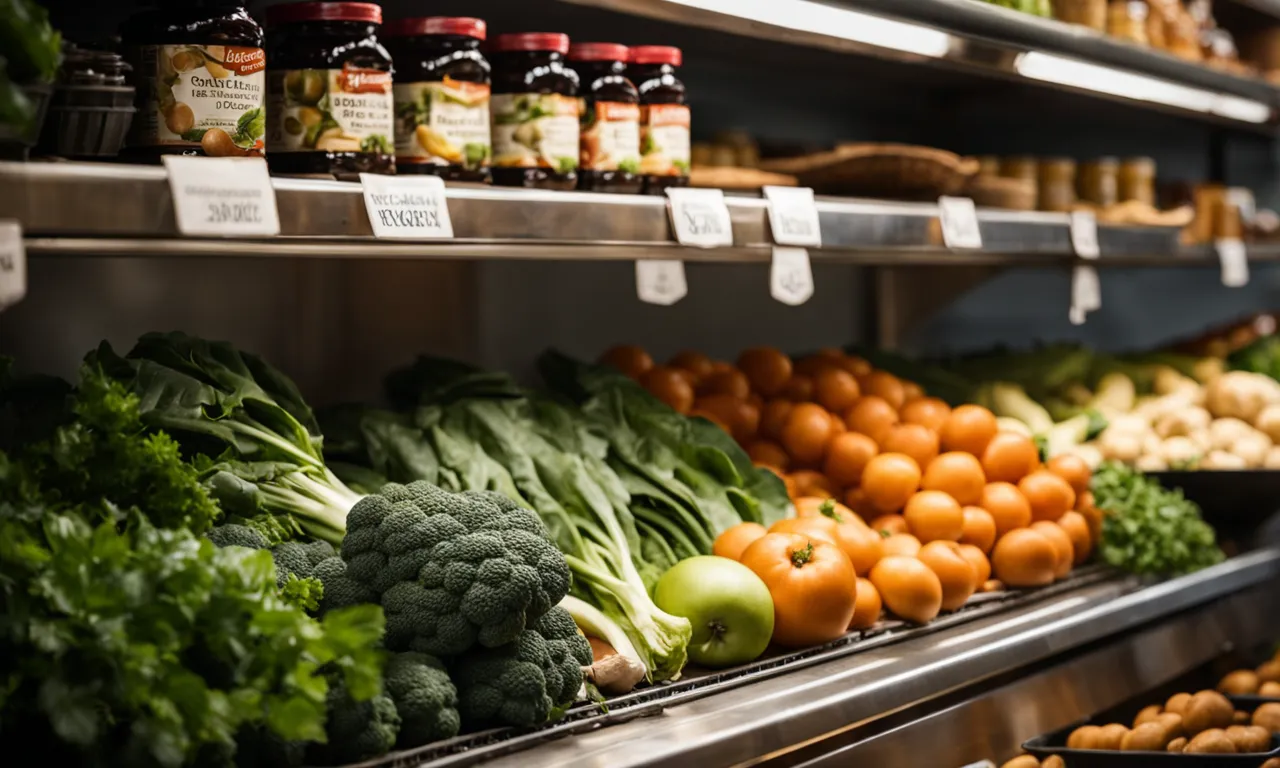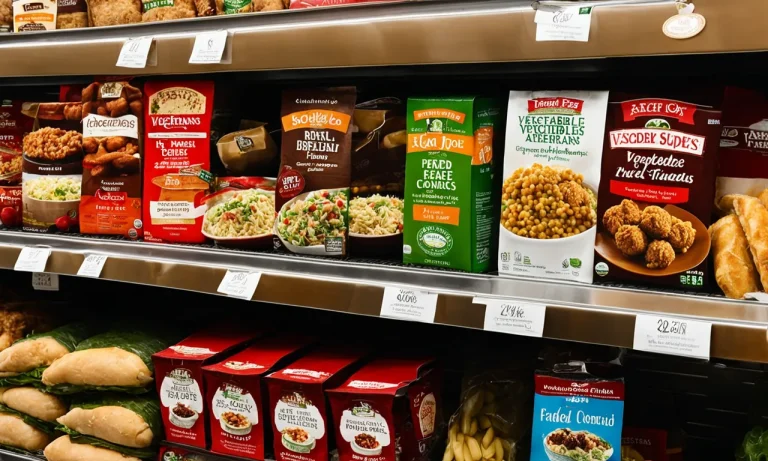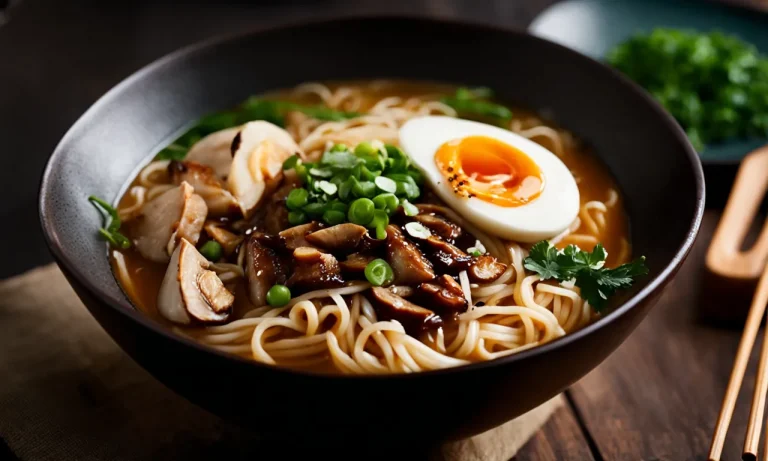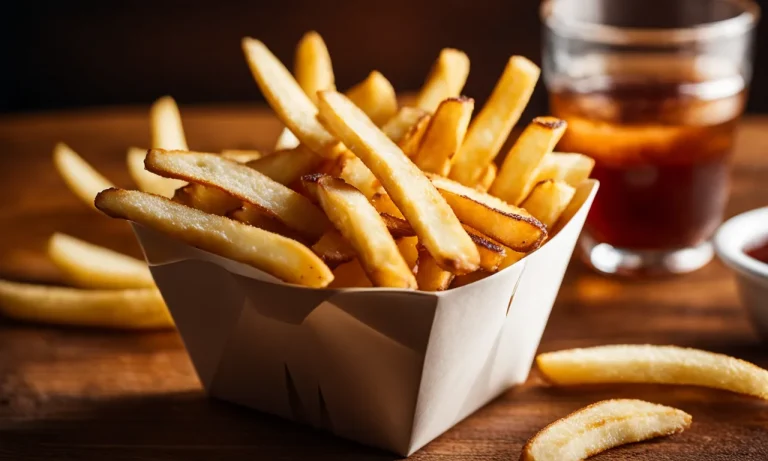Are Mono And Diglycerides Vegan?
With the rise in veganism and plant-based diets, many people are starting to scrutinize food labels more closely. Ingredients like mono and diglycerides have become a source of confusion for those trying to follow a vegan diet.
If you’re wondering whether these common food additives are vegan, this comprehensive guide will provide the details you need.
If you’re short on time, here’s a quick answer: mono and diglycerides can be vegan or non-vegan depending on their source. Most mono and diglycerides in processed foods are derived from plants and technically vegan, but some can come from animal sources.
What Are Mono and Diglycerides?
Mono and diglycerides are commonly used food additives that belong to the category of emulsifiers. Emulsifiers are substances that help mix ingredients that would otherwise separate, such as oil and water.
These additives are derived from glycerol and fatty acids, and their primary function is to improve the texture, stability, and shelf life of processed foods.
Chemical Structure
Mono and diglycerides are composed of one or two fatty acid molecules attached to a glycerol backbone. The term “mono” indicates that there is one fatty acid attached to the glycerol molecule, while “di” signifies that there are two fatty acids.
The specific types of fatty acids can vary, and they can be sourced from vegetable oils, animal fats, or synthetic sources.
Sources and Production
The sources and production methods of mono and diglycerides can vary depending on the manufacturer. Some mono and diglycerides are derived from plant-based oils, such as soybean, sunflower, or palm oil, making them potentially suitable for vegans.
However, it’s essential to note that not all mono and diglycerides are vegan-friendly, as they can also be derived from animal sources, such as lard or tallow.
The production process typically involves the reaction of glycerol with fatty acids under specific conditions. This can be achieved through various methods, including chemical synthesis or extraction from natural sources.
It’s worth mentioning that some manufacturers utilize hydrogenation, a process that involves the addition of hydrogen atoms to unsaturated fatty acids, to modify the properties of mono and diglycerides.
Uses in Food
Mono and diglycerides have numerous applications in the food industry due to their emulsifying properties. They are commonly found in a wide range of processed foods, including baked goods, dairy products, margarine, ice cream, and salad dressings.
These additives help improve texture, prevent oil separation, enhance stability, and extend the shelf life of these products.
It’s important to note that mono and diglycerides are considered safe for consumption by regulatory authorities, such as the U.S. Food and Drug Administration (FDA) and the European Food Safety Authority (EFSA).
However, if you follow a vegan diet, it’s advisable to look for products that explicitly state they are free from animal-derived mono and diglycerides or seek alternative vegan-friendly options.
Are Mono and Diglycerides Vegan?
When it comes to determining whether mono and diglycerides are vegan, it is important to consider their source. Mono and diglycerides are commonly used as emulsifiers in various food products to improve texture and shelf life.
They can be derived from both plant and animal sources, making it crucial for vegans to be aware of their origin before consuming them.
Plant-Derived Varieties
Some mono and diglycerides are derived from plant sources, making them suitable for vegans. These plant-based varieties are typically derived from oils such as soybean, sunflower, or canola oil. They are considered vegan-friendly as they do not involve the use of animal products or by-products in their production process.
Plant-derived mono and diglycerides are commonly found in a wide range of vegan products, including baked goods, dairy-free spreads, and plant-based ice creams. They serve as effective emulsifiers, helping to stabilize the texture and prevent separation of ingredients.
Animal-Derived Varieties
On the other hand, some mono and diglycerides are derived from animal sources, making them unsuitable for vegans. These animal-derived varieties are typically derived from fats such as pork or beef. They are commonly used in non-vegan food products, including some baked goods, processed meats, and dairy products.
Animal-derived mono and diglycerides are not considered vegan-friendly as they involve the use of animal products in their production. Vegans should carefully read ingredient labels and look for alternative products that use plant-based emulsifiers instead.
Determining the Source
Determining the source of mono and diglycerides can be challenging as they are often listed simply as “mono and diglycerides” on ingredient labels. In some cases, manufacturers may specify whether the mono and diglycerides are derived from plant or animal sources.
One way to determine the source is to contact the manufacturer directly and inquire about the origin of their mono and diglycerides. Additionally, some third-party certification organizations, such as the Vegan Society, provide vegan labeling certifications, which can help identify products that are free from animal-derived ingredients.
It is also worth noting that the inclusion of mono and diglycerides in a product does not necessarily make it non-vegan. Many food manufacturers now offer vegan-friendly alternatives, clearly labeling their products as suitable for vegans.
Foods and Products Containing Mono and Diglycerides
Mono and diglycerides are commonly used as emulsifiers in food production. They are added to various products to improve texture, extend shelf life, and prevent separation of ingredients. While they are widely used in the food industry, vegans may be concerned about the source of these additives.
Let’s take a closer look at some foods and products that may contain mono and diglycerides.
Baked Goods
Mono and diglycerides can often be found in baked goods such as bread, cakes, and pastries. These additives help to create a softer texture and improve the overall quality of the products. However, the source of these emulsifiers can vary, and it’s important for vegans to check the ingredient list or contact the manufacturer to ensure they are plant-derived.
Margarine and Spreads
Margarine and spreads are another category of products that commonly contain mono and diglycerides. These additives help to stabilize the mixture and prevent separation of oil and water. Some brands of margarine use plant-based sources for their emulsifiers, making them suitable for vegans.
It’s always a good idea to check the label or contact the manufacturer for clarification.
Snack Foods
Many snack foods, such as chips, crackers, and popcorn, may contain mono and diglycerides. These additives are often used to enhance the texture and mouthfeel of these products. Vegans should be aware that the source of these emulsifiers can vary, and it’s best to check the ingredient list or contact the manufacturer to ensure they are plant-based.
Dairy Products
In dairy products, mono and diglycerides are used as emulsifiers to prevent the separation of fat and water. While these additives are commonly found in ice cream, whipped cream, and other dairy-based desserts, they can also be present in some non-dairy alternatives, such as plant-based ice creams.
Vegans should always check the ingredient list or contact the manufacturer for information on the source of these emulsifiers.
It’s important to note that the use of mono and diglycerides in food production can vary depending on the brand and specific product. Vegans should always read labels carefully and reach out to manufacturers if they have any concerns or questions about the ingredients used.
Vegan Alternatives
Shop for Vegan-Labeled Foods
When trying to determine if mono and diglycerides are vegan, one option is to look for foods that are specifically labeled as vegan. Many brands now cater to the growing demand for vegan products and clearly label their packaging to indicate if a product is suitable for a vegan diet.
By choosing products with a vegan label, you can be confident that the mono and diglycerides used in the food are plant-based and do not contain any animal-derived ingredients.
Make Foods at Home
Another way to ensure that mono and diglycerides are vegan-friendly is to make your own foods at home. By preparing meals and snacks from scratch, you have full control over the ingredients used. Instead of relying on store-bought products that may contain mono and diglycerides of uncertain origin, you can opt for homemade alternatives using vegan-friendly ingredients.
This way, you can enjoy your favorite dishes while having peace of mind about their vegan status.
Look for Alternative Ingredients
If you are unable to find vegan-labeled products or prefer not to make foods at home, you can also look for alternative ingredients that serve a similar purpose to mono and diglycerides. Some common vegan alternatives include soy lecithin, sunflower lecithin, and coconut oil.
These ingredients can provide similar emulsifying properties to mono and diglycerides and are widely used in vegan baking and cooking.
It’s important to note that while mono and diglycerides can be derived from both plant and animal sources, the majority of commercially available mono and diglycerides today are derived from plant-based oils.
However, to be absolutely sure about the vegan status, it is recommended to check the specific product labels or reach out to the manufacturers for clarification.
The Bottom Line
However, it’s important to note that the specific source of mono and diglycerides can vary depending on the manufacturer and the product. Some companies may use animal-derived ingredients, such as fats from pigs or cows, in the production of these additives.
Therefore, if you follow a strict vegan diet, it’s always a good idea to check the ingredient list or contact the manufacturer to ensure that the product you’re considering is free from animal-derived mono and diglycerides.
Additionally, it’s worth mentioning that the use of mono and diglycerides in food products is primarily for their functionality rather than their nutritional value. These additives help to improve texture, increase shelf life, and enhance the overall quality of processed foods.
Therefore, regardless of whether you follow a vegan diet or not, it’s always advisable to consume whole, unprocessed foods whenever possible.
For more information on vegan-friendly ingredients and food products, you can visit reputable websites such as vegan.com or peta.org.
Conclusion
Mono and diglycerides are common food additives that serve various purposes like emulsifying and stabilizing processed foods. While most mono and diglycerides today are vegan, some can be animal-derived.
Reading labels carefully and looking for plant-based alternatives can help vegans avoid those non-vegan varieties.







